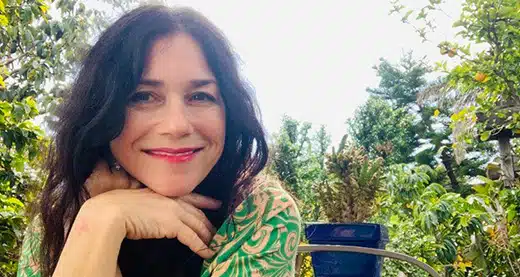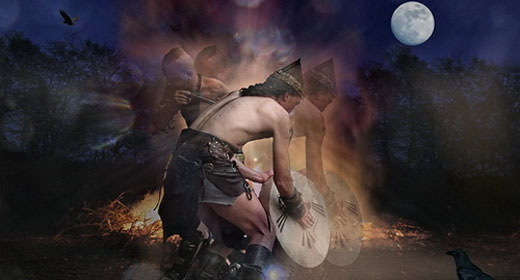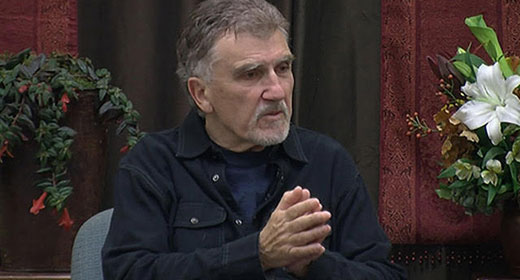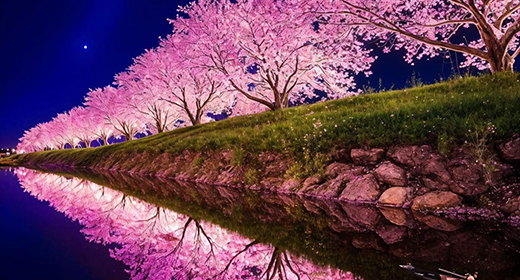by Donna Quesada: You crave spiritual growth. Your soul longs for the deepening of your practice.
 And sometimes you feel like you are floundering, alone and left to your own resources, like a lone swimmer in the middle of the ocean with no guidance. You begin to wonder if being in the company of a like-minded community would be just the thing to further your advancement on the path to awakening. Of course, the real answer to this question is entirely personal. And there is no single right answer, as it is different for everyone. But here, I explore some of the benefits and pitfalls of joining a spiritual community.
And sometimes you feel like you are floundering, alone and left to your own resources, like a lone swimmer in the middle of the ocean with no guidance. You begin to wonder if being in the company of a like-minded community would be just the thing to further your advancement on the path to awakening. Of course, the real answer to this question is entirely personal. And there is no single right answer, as it is different for everyone. But here, I explore some of the benefits and pitfalls of joining a spiritual community.
The Need To Share Dissipates—
Our own evolution often results in a changed attitude toward people that we used to love hanging around with. We can’t relate to the conversations and it seems like we don’t have anything in common anymore. We begin to feel out of sync with activities that once felt familiar. It’s as if one day, you look around and realize you now feel differently, think differently and have different interests.
This may be exactly the right time to be alone. Or maybe the time has come to find and align yourself with individuals who are on a similar path.
The company of fellow seekers can be comforting and supportive. But with all groups, the potential for fanaticism exists. The well-known American seeker, Ram Dass, attributes this tendency to a lack of faith. Ironic, I know. The reason why, he says, is because when our own faith is weak, we try to reassure ourselves by trying to convince others of the merits and virtues of our path. This is where the need to proselytize comes from.
Not only is proselytization as unwelcome as unsolicited advice from your mother in law, it comes with a certain arrogance stemming from the belief that your way is the only way.
As we become more solid in our own practice, the need to advertise it or share it at all, falls away. Our prayers, our meditations, our chanting… or whatever our practice is, becomes an ordinary part of our day, like brushing our teeth, that requires no bells or whistles or drama. We’re able to be discrete in our practice and it doesn’t much matter who we share it with or who knows what we’re doing.
And with this self-assuredness comes an appreciation for others who may have different ways of practicing. In this way, tolerance is a natural outgrowth of awakening.
In short, the sangha… the Buddhist word for the spiritual community… can certainly bring a sense of comfort to us, and can also can buoy us up when we feel weak and discouraged. I have personally felt the invisible but evident power that blossoms when practicing in the presence of others.
But with that said, Ram Dass also says that the sangha can take us beyond the need for sangha! That is because at a certain point, we become so grounded in our commitment to our practice, that it scarcely matters anymore, whether we practice alone or with others. We become fully self-sufficient and self-directed.
The Question of Money—
There is an Indian term dakshina, which is an offering, usually in the form of money. The idea is that between student and teacher, there is an exchange… a teacher gives of his/her own experience in order to pave the way forward. And the student makes an offering in exchange for this guidance. The money doesn’t contaminate the teachings. It’s simply a medium by which the exchange can take place. It is thought that when you’ve made a monetary offering of some sort, you’ll place greater value on what you receive, in return.
With that said, some organizations charge unfair and exorbitant sums to be a part of their “club.” What makes this worse is when the cost outweighs the benefit. Usually, when this is the case, it’s because greed and power are more important to the heads of the community, than the upliftment of others.
It has been my experience that this happens when the pastor, priest or guru is lacking in those qualities that we would hope to find in a teacher. Which brings me to my next point…
Who Is The Teacher—
Jesus, Krishna, Buddha, and others of this caliber were enlightened beings. And there are, of course, enlightened individuals in our era and in recent times, as well… Eckhart Tolle, Amma, and Mother Theresa come to mind.
I have observed—and this is especially true in large organizations—that those in the position of leadership are often sorely lacking in those qualities exhibited by the founder of the very tradition they are representing. For example, those delivering the message of Christ are often unChristlike.
This is not to say that we can only learn from wholly enlightened beings. We can and should learn different things from different teachers, as we walk along our path… much like climbing a mountain. We pull each other along because we’ve been up this way before and we know where the pot holes are… not because we’re fully enlightened. You can help me and I can help you because sometimes I am a little farther along in some areas but at other times, it is you who may know the way.
You Are Your Own Sanctuary—
You never know when a teacher will say something that will change your life. So, if we’re open, we can take different things from different teachers, and in different traditions, along the way. But ultimately, as one of my own teachers said, the teacher is just the form. And at some point, we must go beyond the form, altogether. In the end, we are our own best teacher.








































